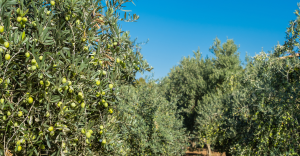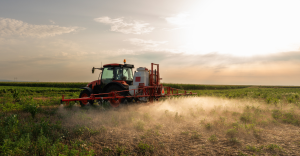Dr. Mariangela Hungria made history by becoming the first Brazilian woman to receive the World Food Prize, considered the “Nobel Prize of Agriculture.” With a career spanning more than four decades dedicated to researching microorganisms that replace chemical fertilizers, her work at Embrapa Soja has been revolutionizing agricultural practices in Brazil for years, while supporting the country’s position as a world leader in sustainable technologies for food production.
In an exclusive interview with Agrishow Digital, the researcher reveals she didn’t know she was competing for the prize. “They called me for a video conference, and I thought they were inviting me to give a lecture. I was already euphoric because it was an incredible opportunity to talk about our work,” she says. When they finally revealed that she had won the prize unanimously, the emotion was overwhelming. “I started crying because I didn’t even know I was a candidate,” she explains.
Mariangela is the tenth woman in the world and the first Brazilian woman to win this honor, being the fourth person from the country to receive the award. Before her, only three Brazilians had been laureates: Alysson Paolinelli and Edson Lobato in 2006, for promoting Brazilian tropical agriculture in the evolution of global food supply, and President Lula in 2011, who shared the prize with former Ghana President John Kufuor for their efforts in fighting hunger through the Zero Hunger program.
A Journey Marked by Challenges: The Inspiration and Strength of Women
Mariangela Hungria’s passion for science began in childhood, strongly influenced by her grandmother, a science teacher who encouraged her by reading science books together and conducting experiments in their backyard.
“When I was 8 years old, she gave me a book about the lives of microbiologists. The next day, I said: ‘Grandma, I want to be a microbiologist,'” she recounts. Shortly after, upon reading Marie Curie’s biography, she discovered she could pursue a scientific path despite being a woman: “Wow, there is a woman scientist, there was one, I can be one too,” she recalls.
Hungria didn’t want to enter the medical field, so her decision to study agronomy came from wanting to combine microbiology with the desire to help fight world hunger. “My grandmother helped many people who came to our house asking for food. So I said I wanted to help somehow so that people in the world wouldn’t go hungry,” she says.
However, the path wasn’t easy. In the 1970s, agronomy was an “extremely masculine and sexist” profession, as she defines it. Additionally, her interest in biologicals went against the dominant trend of the time.
“In college, I became a mother by accident. So I was the super unlikely package to succeed in life because I didn’t have a family with resources, didn’t have a family in agriculture, I was a woman, I was a mother of two children when I finished college, one with special needs, and I wanted to work with biologicals, which nobody believed in at that time,” she remembers.
Despite all obstacles, Mariangela never considered changing fields. “I only heard ‘no’s, that I would never succeed. I had only made the wrong choices in life. And I think this award was largely due to resistance, resilience, and perseverance,” she points out.
The Biological Revolution in Brazilian Agriculture
Dr. Mariangela’s work at Embrapa Soja in Londrina focuses on the biological nitrogen fixation process, which allows plants to obtain this essential nutrient without chemical fertilizers. This technology has transformed Brazilian agriculture, making it more sustainable and economically viable.
“Nitrogen fertilizer is the most difficult to obtain because it requires the most energy for synthesis. Additionally, it involves the emission of N2O, which is a greenhouse gas with high polluting power,” explains the researcher. Another problem is that plants don’t use chemical fertilizers efficiently, with a maximum usage efficiency of 50%.
In contrast, the biological process developed by Mariangela is the result of “millions of years of co-evolution of bacteria with plants,” providing nitrogen directly to the plant “without loss, without polluting rivers and water, without greenhouse gas emissions,” the researcher explains.
The results are impressive. In the last soybean harvest alone, the use of biologicals instead of chemical fertilizers prevented the release of 230 million tons of CO2 equivalent into the atmosphere. For corn, the developed technology allows reducing nitrogen cover by 25%, avoiding the emission of about 236 kg of CO2 equivalent per hectare.
“In Brazil, the main component responsible for greenhouse gas emissions is agriculture, unlike Europe and the United States, where it’s the industrial and automotive sectors. So, reducing this emission in agriculture will contribute greatly to achieving our CO2 emission reduction goals,” she emphasizes.
Economic and Social Impact for Small Farmers
Beyond environmental benefits, the technologies developed by Mariangela and her team have a significant economic impact, especially for small farmers. In a study conducted in partnership with Paraná’s rural extension service over five years, involving nearly 3,300 farmers with properties of at most 50 hectares, the use of biologicals resulted in an economic return of 111 dollars per hectare.
“For a farmer who has at most 50 hectares, this is an opportunity to save, trade in a tractor, or install good internet so that his son stays on the property rather than wanting to move to the city. It’s an opportunity to improve his life,” she emphasizes.
Mariangela stresses that sustainable technologies are accessible to both small and large producers. According to the researcher, what’s missing is investment in rural extension to bring this technical knowledge to small farmers. “Small farmers need this help to bring technologies to them, because large farmers pay consultants.”
The researcher highlights that this support is an investment that benefits the entire society. “Around 60 to 70% of what we eat comes from family farming. So how can we think we’re just doing a favor by providing technical assistance to these farmers, if that food will return to our table with more quality, more abundance, and lower price?” she reinforces.
The Crucial Role of Public Research Institutions
One of the points most emphasized by Mariangela is the importance of public research institutions in developing sustainable technologies. “All these wonderful technologies we have are the fruits of work developed by public institutions. And why is this important? Because sustainability doesn’t generate targeted, short-term profit,” she states.
The researcher explains that the private sector, naturally oriented toward more immediate financial results, tends to prioritize investments with shorter-term returns, which can limit the development of long-term research, such as what she has conducted over four decades.
The results of this public investment are impressive. “Just in the case of soybeans in the last harvest, the savings in nitrogen fertilizers gave Brazil an economy of 20.5 billion dollars. But it’s for everyone, it’s for the person who cultivates 1 hectare of soybeans or for the one who cultivates 800,000 hectares,” she celebrates.
Besides biological nitrogen fixation, Mariangela cites other sustainable technologies developed by public institutions, such as no-till farming and crop-livestock integration systems, which benefit the entire society.
The Future of Sustainable Agriculture
Currently, Mariangela is focused on recovering degraded pastures using microorganisms. “Today our main environmental problem is pastures. The area we have with pastures in Brazil is equivalent to 2.1 times the area with all crops, and 60% or more of these pastures are in a stage of degradation,” she explains.
According to her, the use of microorganisms helps in recovering these pastures, returning life to the soil. “A soil without life, without microorganisms, can’t even fix its own fertilizer. So we recover the life of soils and make the microbial processes that contribute to improvement.”
The goal is to increase the quantity and quality of biomass produced, allowing more cattle heads in smaller areas. “Having more food of better quality, you can put all cattle in half the area we have today, in the future even in a third of the area, and you can free up all that area for agriculture. So we can double, even triple, the area with crops in Brazil without having to cut down a single tree.”
For Mariangela, sustainable agriculture is a one-way path, with clear economic advantages. “Sustainable systems are more resilient, so production is more balanced over time. And this is very important because the worst thing for a farmer is to produce more one year and nothing the next,” she comments.
She also highlights that Brazil is one of the leaders in sustainable agriculture technologies in the world, although this is not always recognized internationally. “Sometimes we only get headlines abroad saying Brazilian agriculture is horrible. And, unfortunately, we have bad farmers and bad examples, but we’ll have bad professionals in all areas. The vast majority of Brazilian farmers are concerned with sustainability.”
An Example for Women in Science and Brazilian Agriculture
As the first Brazilian woman to receive this prestigious award, Mariangela leaves an inspiring message for young scientists, especially women, emphasizing that anyone can achieve their goals, regardless of what others say:
“Unfortunately, even today women hear ‘no’ much more than men. And I think I was a champion at hearing ‘no’s, that I was unlikely to succeed. Any woman, any girl, any young person, you can be whatever you want. You shouldn’t be guided by what people say you would be suitable for or, worse, not capable of. Who decides your capacity, what you can be, is yourself.”
Mariangela recognizes the fundamental role that other women played in her journey, especially her grandmother and her scientific mentor, Dr. Joana Döbereiner. “What would have become of my life, my career, if I hadn’t had these two great female personalities?”
She recalls how Dr. Joana, who would have turned 100 in 2024, was visionary in hiring her despite her apparent “limitations.” “I had two daughters, one with special needs, no relatives living nearby. She didn’t see these limitations in me. She saw the love, the dedication I had to science.”
Therefore, Mariangela invites reflection on prejudices in the professional environment. “Perhaps if there had been a man there with prejudice, he wouldn’t have hired me, and today I wouldn’t be here winning an award or being able to speak well of Brazil abroad, talk about our sustainability, being a spokesperson for so many things,” she emphasizes.
A Legacy for Brazilian and Global Agriculture
Mariangela Hungria’s work represents not only a significant scientific advancement but also an example of how public research can transform agriculture, making it more productive, sustainable, and accessible to all types of producers.
Her story is a great example that persistence, passion, and dedication can overcome seemingly insurmountable barriers. At the same time, it highlights the importance of investing in science and technology to address global challenges of food security and climate change.
As she herself advises young scientists: “Do what you love, what you believe in, and you will certainly succeed.”
The international recognition of Mariangela Hungria with the World Food Prize celebrates her individual contributions, but also highlights the potential of Brazilian agriculture to lead the way toward a more sustainable future for food production worldwide.





